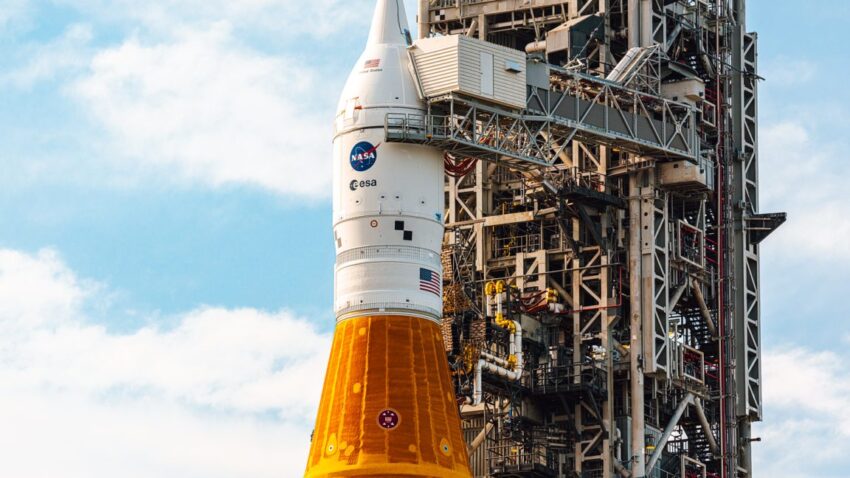
congress and trump may compromise on the The future of NASA’s Space Launch System (SLS) rocket is in jeopardy as Congress and the Trump administration consider significant budget cuts, particularly to its upper stage.
congress and trump may compromise on the
Background on the Space Launch System
The Space Launch System (SLS) is a powerful rocket developed by NASA, designed to carry astronauts and cargo beyond low Earth orbit. It is a critical component of NASA’s Artemis program, which aims to return humans to the Moon and eventually send them to Mars. The SLS is touted for its heavy-lift capabilities, making it one of the most robust rockets ever built. However, its development has been plagued by delays and cost overruns, leading to scrutiny from lawmakers and the public alike.
Current Budget Climate
As the new fiscal year approaches on October 1, 2025, there are numerous uncertainties surrounding NASA’s budget. The Trump administration has indicated a willingness to make drastic cuts to various science missions, including those that are already operational or in the pipeline. This move has raised alarms among scientists and advocates who argue that such cuts would undermine years of research and development.
Congress has shown a commitment to maintaining funding for these missions, but the lack of a confirmed budget complicates matters. Without a clear financial plan, the White House is preparing to halt funding for several key initiatives, which could have long-lasting implications for the U.S. space program.
House Appropriations Committee’s Role
This week, the House Appropriations Committee is set to discuss the Commerce, Justice, and Science budget bill, which includes funding for NASA. This meeting is crucial, as it may provide some clarity on the direction Congress intends to take regarding the budget. However, the outcome remains uncertain, with many experts predicting that a budget will not be finalized by the October 1 deadline.
Potential Compromise on the SLS Upper Stage
One of the most contentious points in the budget discussions is the future of the SLS upper stage. The upper stage is essential for missions that require additional thrust to reach their destinations, such as the Moon or Mars. However, it is also one of the most expensive components of the SLS program, leading some lawmakers to propose its elimination as a cost-saving measure.
Implications of Cutting the Upper Stage
Eliminating the upper stage could have significant ramifications for NASA’s long-term goals. Without this component, the SLS would be limited in its ability to carry out deep-space missions. This limitation could delay the Artemis program and hinder the United States’ ability to maintain a leadership role in space exploration.
Moreover, the decision to cut the upper stage could set a precedent for future budget discussions. If Congress allows such a significant reduction in capabilities, it may embolden further cuts to NASA’s budget, impacting other vital programs and missions.
Stakeholder Reactions
The potential cuts have sparked a range of reactions from stakeholders in the space community. Scientists, engineers, and advocates for space exploration have expressed concern over the ramifications of these budget cuts. Many argue that the SLS is a critical investment in the future of space exploration and that cutting its funding would be a step backward.
On the other hand, some lawmakers and budget hawks argue that the SLS has already consumed a significant portion of NASA’s budget without delivering the promised results. They contend that the agency should focus on more cost-effective solutions for space exploration, such as partnerships with private companies or the development of smaller, more efficient rockets.
The Broader Impact on NASA and Space Exploration
The ongoing budget negotiations are not just about the SLS; they reflect broader trends in how the U.S. government prioritizes space exploration. As private companies like SpaceX and Blue Origin continue to make strides in rocket development, there is growing pressure on NASA to adapt its approach. This includes reevaluating its reliance on large, expensive programs like the SLS and exploring more innovative solutions.
Future of NASA’s Science Missions
In addition to the SLS, the potential budget cuts could affect numerous science missions that are crucial for understanding our planet and the universe. Missions focused on climate change, planetary exploration, and astrophysics could face significant funding reductions. These missions not only contribute to scientific knowledge but also have practical implications for society, such as improving weather forecasting and understanding natural disasters.
Congressional Dynamics
The dynamics within Congress will play a critical role in shaping the final budget. The House and Senate often have differing priorities, which can complicate negotiations. The upcoming discussions in the House Appropriations Committee will be closely watched, as they may set the tone for negotiations with the Senate and the White House.
Furthermore, the political landscape is shifting, with the potential for changes in leadership following the upcoming elections. This could influence the direction of NASA’s budget and its overall mission. Stakeholders are keenly aware of these dynamics and are advocating for a budget that supports robust funding for space exploration.
Conclusion
The fate of the SLS rocket and NASA’s broader budget is hanging in the balance as Congress and the Trump administration navigate a complex landscape of priorities and funding challenges. The potential decision to cut the SLS upper stage raises significant questions about the future of U.S. space exploration and the agency’s ability to achieve its ambitious goals.
As the October 1 deadline approaches, stakeholders are hopeful that Congress will find a way to compromise and ensure that NASA has the resources it needs to continue its vital work. The implications of these budget decisions will resonate for years to come, shaping the trajectory of space exploration in the United States and beyond.
Source: Original report
Was this helpful?
Last Modified: September 9, 2025 at 12:41 am
1 views















